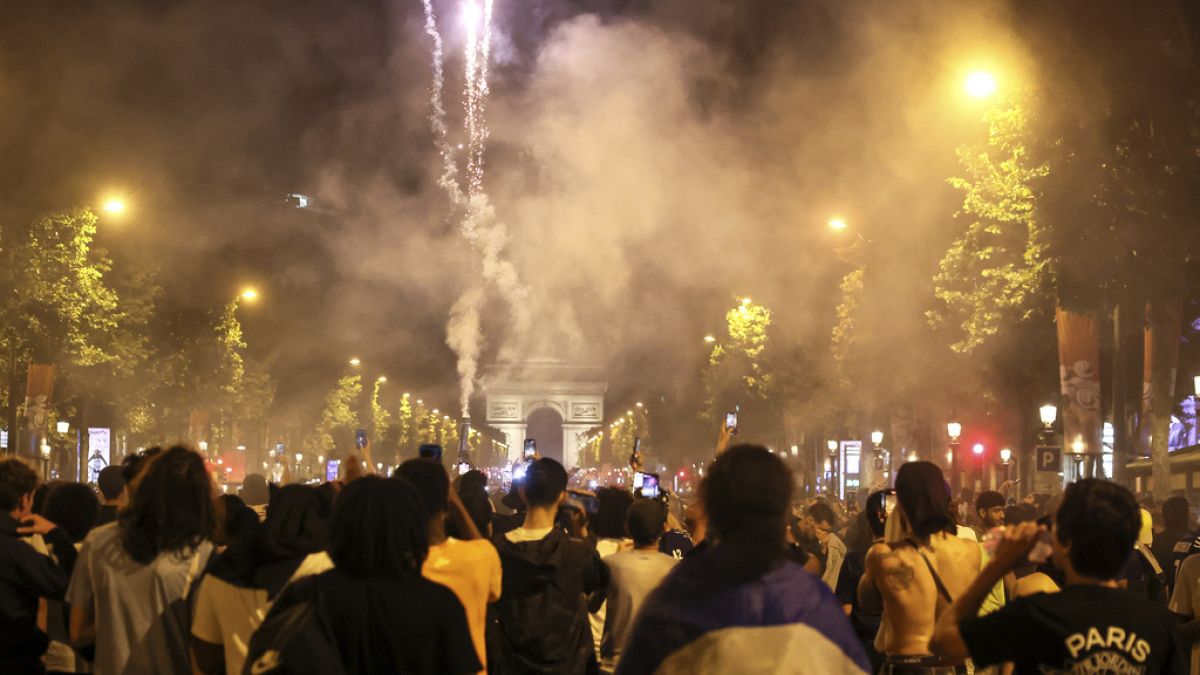A Wisconsin judge indicted for allegedly helping an undocumented immigrant evade ICE is now claiming ‘absolute judicial immunity’ in a broader legal effort to dismiss all charges.
Hannah Dugan, 66, a Milwaukee County Circuit Court judge, was arrested by FBI agents on April 25 for allegedly preventing Immigration and Customs Enforcement (ICE) agents from detaining a man in her courtroom.
The man, 31-year-old Eduardo Flores-Ruiz, was reportedly subject to a federal detainer at the time.
Federal prosecutors allege Dugan directed ICE officers to the chief judge’s office while allowing Flores-Ruiz and his attorney to exit through a door typically used by jurors.
The long-time judge was later indicted on May 13 on charges of obstructing a federal agency and aiding Flores-Ruiz’s escape.
However, in a 37-page memorandum filed May 14, her attorneys argued the indictment is an ‘ugly innovation’ that threatens long-standing legal precedent.
They claim Dugan is protected by ‘absolute judicial immunity’ for actions taken as part of her official duties, even if those actions are later contested.
‘Judges can be and are charged for actions wholly unrelated to their role, like taking bribes or kidnapping,’ the memo notes, adding that Dugan’s conduct occurred squarely within her judicial capacity.
Hannah Dugan (pictured), 66, a Milwaukee County Circuit Court judge, was arrested by FBI agents on April 25 for allegedly preventing Immigration and Customs Enforcement (ICE) agents from detaining a man in her courtroom

The long-time judge was indicted on May 13 on charges of obstructing a federal agency and aiding 31-year-old Eduardo Flores-Ruiz’s escape. Pictured: Surveillance footage shows Hannah Dugan outside her courtroom on April 18, confronting federal agents who were there to arrest Eduardo Flores-Ruiz
Her high-powered legal team, including attorney Dean Strang, warned the case could set a ‘dangerous precedent,’ undermining judicial independence.
‘This is an extraordinary prosecution that poses a threat to federalism and judicial independence,’ the filing states.
‘Dismissal here flows from a straightforward application of long-settled law. The indictment itself is an ugly innovation. Its dismissal will not be.’
The filing continues: ‘Nothing in the Constitution allows the federal government to superintend the administration and case-by-case, daily functioning of state courts as this indictment proposes.’
This latest motion expands on an earlier filing with more detailed arguments about federal overreach and the constitutional role of judges. Dugan’s attorneys maintain she acted within her jurisdiction and broke no laws in declining to facilitate the detention.
The US Department of Justice, however, characterizes the incident as obstruction of federal law, triggering a contentious legal and political debate.
An amicus brief filed on Friday by 138 former state and federal judges supports Dugan, arguing she is entitled to ‘absolute immunity for her official acts.’
The brief compares this protection to that granted to members of the legislative and executive branches.

Dugan’s high-powered legal team claims Dugan is protected by ‘absolute judicial immunity’ for actions taken as part of her official duties, even if those actions are later contested. Pictured: Dugan leaves after appearing in court in Milwaukee on May 15

Eduardo Flores-Ruiz, 31, appeared in Dugan’s court on April 18 for a status conference in a misdemeanor battery case. He is accused of repeatedly hitting and briefly strangling his roommate, and also striking two women who tried to intervene
It calls the prosecution an ‘egregious overreach by the executive branch’ that ‘threatens public trust in the judicial system and the ability of the public to avail themselves of courthouses without fear of reprisal.’
But, the Justice Department maintains that no one – including judges – is above the law when it comes to obstructing federal immigration operations.
‘Since President Trump was inaugurated, activist judges have tried to obstruct President Trump and the American people’s mandate to make America safe and secure our homeland – but this judge’s actions to shield an accused violent criminal illegal alien from justice is shocking and shameful,’ Assistant Secretary Department of Homeland Security Tricia McLaughlin said in a statement.
Dugan, who was released after her arrest, pleaded not guilty earlier this month. Her trial is set to begin the week of July 21.
If found guilty of both charges, she could face up to six years in prison and $350,000 in fines.
She has served as a Milwaukee County Circuit Court judge since 2016, winning election with about 65 percent of the vote and running unopposed for reelection in 2022, according to CBS News.
As for Flores-Ruiz, he had appeared in Dugan’s court on April 18 for a status conference in a misdemeanor battery case, according to the Milwaukee Journal Sentinel.
He is accused of repeatedly hitting and briefly strangling his roommate, and also striking two women who tried to intervene.
Flores-Ruiz has pleaded not guilty to three battery charges and to a separate federal charge of illegally re-entering the US after being deported to Mexico 12 years ago.
Six federal agents were present at the courthouse on April 18 to arrest him. He was ultimately taken into custody after a short chase outside the courthouse.































